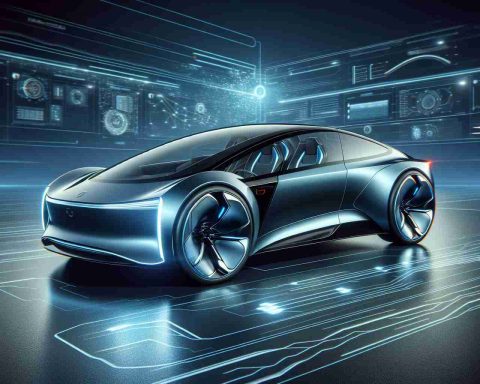The Future of Maruti Suzuki: Exciting Developments Ahead
Maruti Suzuki is ready to reshape the landscape of the Indian automotive market with some groundbreaking initiatives aimed at enhancing mileage and expanding its vehicle lineup. The company, which commands the largest share in the Indian car sector, is stepping into the electric vehicle arena with the launch of the much-anticipated e-Vitara. In addition, plans are in motion to unveil two new hybrid models this year, possibly including an upgraded version of the popular Fronx and a spacious 7-seater variant derived from the Grand Vitara.
The revamped Fronx is set to showcase Maruti’s innovative strong hybrid technology, diverging from Toyota’s systems previously utilized. Utilizing the efficient 1.2L Z-Series petrol engine, the new hybrid version promises impressive fuel efficiency, reportedly exceeding 35 kmpl. Additionally, upgrades may introduce an advanced driver assistance system (ADAS), alongside the existing petrol engine options.
In a significant move to capture the premium sector, Maruti Suzuki is also poised to launch a seven-seater SUV, codenamed Y17. This model, based on the Grand Vitara platform, will feature a spacious interior to accommodate an extra row of seating and is expected to showcase a modernized dashboard with an updated infotainment system. Engine choices may include both mild hybrid and petrol configurations, enhancing its competitive edge against rivals like Hyundai and Tata.
With these advancements, Maruti Suzuki is set to reinforce its leadership in the automotive market.
The Future of Maruti Suzuki: Pioneering Sustainable Mobility
Maruti Suzuki stands at the brink of revolutionizing the Indian automotive landscape, not just through innovative vehicle designs but also by embracing sustainability in a way that could significantly impact the environment and humanity at large. As the company prepares to introduce the e-Vitara and expand its hybrid model lineup, the implications extend far beyond the automotive sector, touching on broader themes of sustainability, economic growth, and the future of mobility.
One of the most pressing environmental concerns today is the carbon footprint produced by traditional fossil fuel-powered vehicles. With the introduction of electric vehicles (EVs) like the e-Vitara, Maruti Suzuki is actively contributing to the reduction of greenhouse gas emissions. Electric vehicles emit zero tailpipe emissions, which can lead to improved air quality in urban areas where pollution is a major issue. With India facing severe air pollution challenges, transitioning to EVs could significantly alleviate public health problems associated with poor air quality, ultimately saving lives and reducing health care costs.
Moreover, the innovative hybrid technology being rolled out with models like the revamped Fronx is pivotal. By utilizing a strong hybrid system, Maruti Suzuki can offer vehicles that not only reduce fuel consumption but also enhance fuel efficiency significantly—up to 35 kilometers per liter. This focus on optimizing fuel technology is crucial for reducing reliance on fossil fuels, which aligns with global efforts to combat climate change. As more manufacturers move towards hybrid and electric vehicles, this shift can transform the entire industry, leading to a greener future.
From an economic perspective, Maruti Suzuki’s innovations may drive job creation in the electric and hybrid vehicle sectors. As the demand for these vehicles grows, the supply chain will expand to accommodate the production of batteries, charging infrastructure, and related technologies. This can result in new employment opportunities in manufacturing, research and development, and related industries, contributing to economic growth and technological advancement.
Furthermore, Maruti Suzuki’s plans to enter the premium segment with its seven-seater SUV (codenamed Y17) will likely spark competition, encouraging other automakers to innovate. This competition can lead to lower prices for consumers and a broader range of options in the market. As consumers become more conscious of sustainability, a more diverse vehicle lineup catering to eco-friendly options can influence purchasing decisions, promoting a culture of sustainability in personal transport.
Looking ahead, the future of humanity is inextricably linked to these developments. As countries seek to meet international climate commitments and reduce their carbon footprints, the role of companies like Maruti Suzuki becomes even more vital. Their commitment to sustainability and innovation will not only impact the automotive market but also foster broader societal changes where sustainable practices in mobility become the norm.
In conclusion, Maruti Suzuki’s exciting advancements mark a critical step towards a sustainable future for the automotive industry. Their strategies in environmental impact, economic growth, and consumer choice reflect a broader recognition of the urgent need for both businesses and individuals to adapt to changing climatic realities. This conscious evolution in mobility stands to reshape not just India, but potentially influence global automotive trends and the trajectory of humanity towards a more sustainable existence.
The Exciting Future of Maruti Suzuki: The Shift Towards Electric and Hybrid Vehicles
## Overview of Maruti Suzuki’s Upcoming Developments
Maruti Suzuki, the leading car manufacturer in India, is on the cusp of significant changes that promise to reshape the automotive landscape. As the demand for environmentally friendly vehicles rises, Maruti Suzuki is focusing on electric and hybrid technology while continuing to expand its vehicle lineup with innovative models.
## Key Developments on the Horizon
Launch of the e-Vitara
One of the most anticipated releases is the e-Vitara, Maruti Suzuki’s entry into the electric vehicle segment. This model aims to compete effectively with other electric offerings in the Indian market, combining modern technology with the reliability the brand is known for.
Introduction of Hybrid Models
Maruti is also set to unveil two new hybrid models this year. Among these is an upgraded version of the Fronx. The new iteration is expected to utilize Maruti’s own strong hybrid technology, diverging from systems previously adopted from Toyota. This hybrid will incorporate the 1.2L Z-Series petrol engine, allowing it to achieve an impressive fuel economy that could exceed 35 kmpl.
# Upgraded Features
The revamped Fronx will potentially feature an advanced driver assistance system (ADAS), showcasing Maruti Suzuki’s commitment to incorporating cutting-edge technology into their vehicles. This dual approach of offering both regular petrol engine options and hybrid models allows for flexibility in consumer choice.
The Y17 Seven-Seater SUV
Another exciting project is the launch of the Y17, a seven-seater SUV designed on the Grand Vitara platform. This new model promises a more spacious interior, ensuring comfort for families. Notable features are expected to include:
– A modernized dashboard
– An updated infotainment system
– Options for both mild hybrid and petrol engines
This new SUV will enhance Maruti Suzuki’s portfolio, positioning it effectively against competitors such as Hyundai and Tata, which are also focusing on the growing SUV market.
## Advantages of Maruti Suzuki’s Innovations
Pros:
– Fuel Efficiency: The new hybrid vehicles are expected to offer exceptional mileage, appealing to cost-conscious consumers.
– Enhanced Technology: The inclusion of features like ADAS may attract tech-savvy buyers looking for advanced safety and convenience options.
– Broader Market Reach: By entering the electric and hybrid segments, Maruti can cater to a new demographic of environmentally conscious consumers.
Cons:
– Market Competition: The shift to electric and hybrid models means Maruti Suzuki must compete with established electric vehicle manufacturers, which could pose challenges.
– Pricing Considerations: New technologies, especially in hybrids and electric vehicles, can lead to higher initial costs that may deter some buyers.
## Insights into Market Trends
The shift towards electric and hybrid vehicles is not only a response to regulatory changes but also a reflection of evolving consumer preferences. With the global automotive industry moving towards sustainability, Maruti Suzuki’s timely investments in these technologies will likely solidify its market position.
## Conclusion
Maruti Suzuki’s commitment to innovation through the launch of the e-Vitara, new hybrid models, and the spacious Y17 SUV underscores its strategy to maintain leadership amidst changing market demands. As the Indian automotive landscape evolves, these developments position Maruti Suzuki as a forward-thinking player ready to tackle the challenges and opportunities of the future.
For more insights into the automotive industry, visit Maruti Suzuki.












